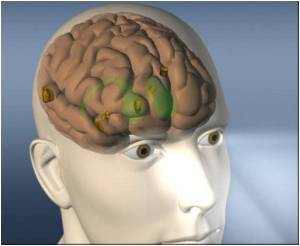Tocagen Inc. presented the company's investigational treatment for high grade glioma that wipes out brain tumours and presents a vivid survival advantage in mouse models of glioblastoma.
Tocagen Inc. stated in the publication of data presenting the company's investigational treatment for high grade glioma that wipes out brain tumours and presents a vivid survival advantage in mouse models of glioblastoma. Almost all mice receiving the top dose of Toca 511 followed by 5-FC were still alive at 180 days, which was the termination date for the experiment, whereas all control mice died by day 43. The article was published today in the February issue of the
Neuro-Oncology journal.
"After administration of Toca 511, the efficiency and specificity of viral spread through the tumor in an immune-competent animal model was impressive," said John Coffin, Ph.D., American Cancer Society Professor at the Sackler School of Biomedical Sciences at Tufts University and Special Advisor to the Director, HIV Drug Resistance Program, Center for Cancer Research, National Cancer Institute. "As a career retrovirologist and advisor to the scientists at Tocagen, I am pleased to see the progress they have achieved with their retroviral replicating vector technology, and I look forward to seeing how this approach translates in humans with advanced cancer." The results published in
Neuro-Oncology showed that Toca 511 delivers a pro-drug activating gene to tumor cells where it converts the pro-drug 5-FC (flucytosine) into the anti-cancer drug 5-fluorouracil. Treatment with the high doses of Toca 511 resulted in elimination of tumors in most animals after dosing with 5-FC. The combination treatment of Toca 511 and 5-FC was well tolerated and did not cause toxicity over the course of the six month treatment protocol."Because of the invasive nature of glioblastoma, cancer cells are typically left behind after surgery, even with a 'complete' resection, making tumor re-growth almost inevitable," said Santosh Kesari, M.D., Ph.D., director of Neuro-Oncology in the Moores Cancer Center and in the Department of Neurosciences at the University of California, San Diego, one of the investigators in the Toca 511 clinical study. "There is an urgent need for new treatments that can eliminate residual cancer cells in patients with glioblastoma and other invasive gliomas. These preclinical results are very promising and provided the support for initiating human clinical trials of Toca 511."
About Toca 511 & Toca FCThe combination of Toca 511 (vocimagene amiretrorepvec), for injection & Toca FC (flucytosine), extended-release tablets is being investigated at leading centers across the US in clinical studies in patients with recurrent high grade glioma, including glioblastoma multiforme (GBM). Toca 511 is a retroviral replicating vector (RRV) that is designed to deliver a prodrug activator gene called cytosine deaminase (CD) selectively to cancer cells. After allowing time for Toca 511 to spread through the tumor, those cancer cells expressing the CD gene can convert the anti-biotic drug flucytosine into the anti-cancer drug 5-fluorouracil (5-FU). In these studies, patients receive a single administration of Toca 511 at the time of surgery (craniotomy or biopsy) followed by multiple cycles of oral Toca FC.
Source-Eurekalert
